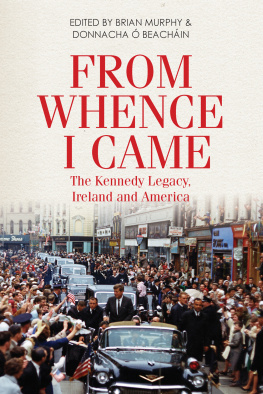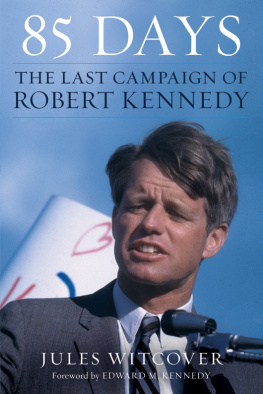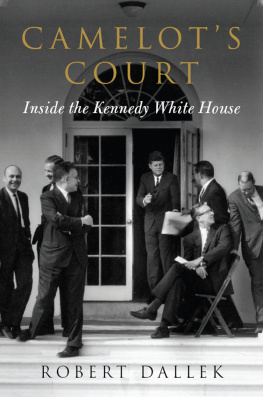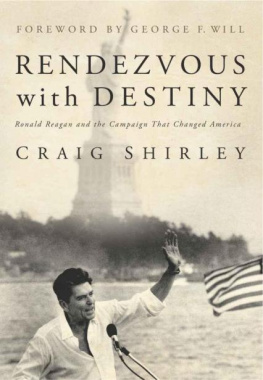Copyright 2019 by Jon Ward
Cover design by Jarrod Taylor. Cover photograph by AP. Cover copyright 2019 by Hachette Book Group, Inc.
Hachette Book Group supports the right to free expression and the value of copyright. The purpose of copyright is to encourage writers and artists to produce the creative works that enrich our culture.
The scanning, uploading, and distribution of this book without permission is a theft of the authors intellectual property. If you would like permission to use material from the book (other than for review purposes), please contact permissions@hbgusa.com. Thank you for your support of the authors rights.
Twelve
Hachette Book Group
1290 Avenue of the Americas, New York, NY 10104
twelvebooks.com
twitter.com/twelvebooks
First Edition: January 2019
Twelve is an imprint of Grand Central Publishing. The Twelve name and logo are trademarks of Hachette Book Group, Inc.
The publisher is not responsible for websites (or their content) that are not owned by the publisher.
The Hachette Speakers Bureau provides a wide range of authors for speaking events. To find out more, go to www.hachettespeakersbureau.com or call (866) 376-6591.
Library of Congress Cataloging-in-Publication Data has been applied for.
ISBNs: 978-1-4555-9138-1 (hardcover), 978-1-4555-9137-4 (ebook)
E3-20180906-JV-PC
History is made up of living men whose work is handed over defenseless to our understanding and appreciation upon their death. Precisely because of this, they have a claim on our courtesy, a claim that their own concerns should be heard and that they should not be used simply as a means to our ends.
Karl Barth
If I could I would write with love
The End of the Affair
To Alison: Because of you I can write with love
And to Joanne F. Crichton, 19282017
I entered Jimmy Carters personal office on a chilly winter day two weeks after the new year in 2015. The thirty-ninth president of the United States stood looking out of a large window onto the bucolic grounds of the Carter Center in Atlanta. His office was dimly lit by cloud-muted sunlight. Carter turned as I walked in and greeted me politely. At age ninety, he was sharp as ever. He had just returned from a trip to New York to promote a decades-long effort to eradicate worm-borne disease in Africa. That morning, he told me, he had sent his editor a finished manuscript for his latest book, his thirty-first.
Carter sat during much of our conversation with his right foot up on the coffee table in front of him, his leg bent, one or both of his hands resting on his knee. His eyes were a piercing blue. He wore his watch with the display on the inside of his wrist. I learned that in the Navy, he said, referring to his days at the Naval Academy and as a nuclear submarine officer. Submariners wouldnt want a reflection from the watch to give away the submarines position to enemy ships.
I was there to talk to Carter about Ted Kennedy. The last of the Kennedy brothersthe only one not cut down by an assassins bullet or killed in World War IIhad run against Carter for the Democratic nomination in 1980, at the end of Carters first term in office. It was one of only a handful of times in American history that an incumbent president running for reelection had been challenged from within his own party. And the fight between Carter and Kennedy turned ugly. We talked about one of the most ignominious episodes, when Kennedy embarrassed Carter on the final night of the Democratic convention at Madison Square Garden in New York. Kennedy was drinking that night. Everybody knew it, Carter told me. On the stage when we were looking for harmony, I reached out to shake his hand. He obviously deliberately avoided my hand. He refused to shake hands with me.
That wasnt quite right. I reminded him, having traveled to Vanderbilt Universitys video archives to watch the footage of that night, that the two of them had in fact shaken hands, more than a few times, in the span of a painfully awkward few minutes. The problem was that Kennedy had refused to join Carter in a pose of unity, hands clasped together and raised above their heads. But Carter remembered the most important part. Kennedy had humiliated him in front of the entire country on live television.
That night showed how divided the Democrats were. The party was shattering. Key members of the coalition that gave Democrats political dominance from the New Deal onward for almost half a centurysouthern whites, blue-collar laborers from midwestern citieswere deserting them for the Republican Party. Carter had held things together in 1976, because he was a southerner who won large swaths of that region but also appealed to an increasingly liberal party activist base. But the 1980s would be the age of Reagan, and the 1990s would bring in Republican control of Congress after decades of Democratic supremacy.
Carter still blamed his loss to Reagan in 1980 in large part on Kennedys defiant challenge to his reelection bid. He regretted not having done more to prevent it. The first year I was in office, [Kennedy] was my best supporter in the whole Congress, he said. And when I saw that that was changing, particularly late in 78, I believe, I should have gone out of my way, I could have gone out of my way to accommodate him. In particular, Carter wished hed granted Kennedys request to appoint Archibald Coxthe former solicitor general fired by former president Nixon in a dramatic showdown over a subpoena of Nixons Oval Office recordingsto the First Circuit Court of Appeals. I think it meant a lot to him in retrospect, Carter said. I didnt do it, and I think if I had appointed that judge, Kennedy probably wouldnt have run.
The former president was overestimating the impact that such a gesture would have had, and underestimating the degree to which his and Kennedys passionsin addition to forces well beyond their controlhad drawn them into conflict. He had relished the chance to take Kennedy on. He wanted to whip his ass, as he said publicly at the time. Kennedy was his polar opposite: a man of great appetites who struggled to exercise personal discipline, born into privilege, power, and wealth. Carter, who by sheer self-discipline and determination willed himself from a childhood on a southwest Georgia farm to greatness, despised Kennedy for being born on third base. Carter had anticipated a showdown with Kennedy for years before Kennedy even knew who he was.
And Carter was no dummy. He knew that Kennedys challenge was driven by forces beyond Teddys control, by the ghosts of his demanding father and his martyred brothers.
I really relished Kennedys support, Carter told me. But then he decided, I dont know why, I think he felt that he in a way deserved to be president, that I didnt. Maybe inspired by his own family membersyou know, You need to carry on the Kennedy heritage. And since Bobby and John had been assassinated, I could see how he would be looked on as heir apparent.
He paused, sighed, and said, Anyway, he changed.
Two months after I interviewed Carter in Atlanta, I traveled to Boston to attend the opening ceremony of the Edward M. Kennedy Institute. The center was the equivalentin size, prestige, and sheer ambitionof a presidential library. Kennedy had passed away only five and a half years earlier. It had taken sixteen years after JFKs death before his library opened, due to cost overruns and site changes. Bobby Kennedys children were angry that no such building existed in their fathers memory. But Bobby did not have any advocates in his death like Teddys widow, his second wife, Victoria Reggie Kennedy. Vicki, a Washington attorney and a deft political operator, had seen to it that the taxpayers pitched in $38 million to the $78 million project. She had also assumed impressive control over Kennedys legacy. Kennedys own sons told me they had to check with her before talking to me.






